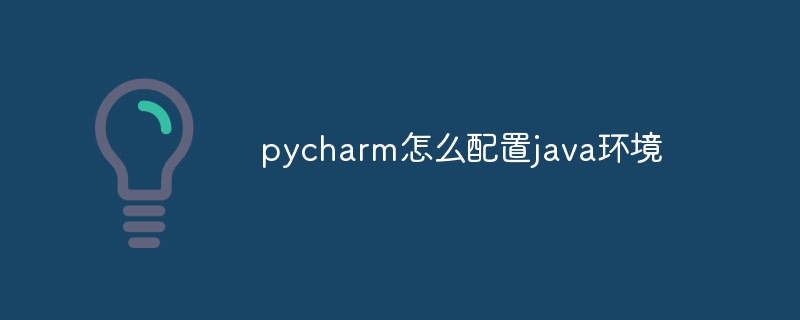Steps to configure the Java environment in PyCharm: Install JDK; open PyCharm, select "Settings" > "Project" > "Project Interpreter"; add a new Java interpreter, enter the JDK installation directory; create Java class and write the code; run the code to verify that the configuration is correct.

How to configure the Java environment in PyCharm
PyCharm is an integrated development environment widely used for Python development (IDE). However, it can also be configured to develop Java applications. The following is how to configure the Java environment in PyCharm:
1. Install the Java Development Kit (JDK)
- Visit Oracle's Java download page: [https: //www.oracle.com/java/technologies/javase/jdk19-archive-downloads.html](https://www.oracle.com/java/technologies/javase/jdk19-archive-downloads.html)
- Download the JDK for your operating system
- Install the JDK
2. Configure PyCharm
- Open PyCharm
- Click "File" > "Settings"
- Select "Project" > "Project Interpreter" in the left menu
- Click the plus sign ( ) Icon to add a new interpreter
- Select "Java" for the interpreter
- Enter the installation directory of the JDK in the "Path" field
- Click "OK"
3. Verify configuration
- Create a new Java class in the PyCharm project
- Write some Java code
- Click "Run" > "Run"
- If the Java code runs successfully, it means that the Java environment is configured correctly
Other notes:
- Please make sure that the JDK you install is compatible with the version of PyCharm.
- If you encounter any problems, please check that the JDK is installed correctly and added to the system path.
- PyCharm also supports build tools such as Maven and Gradle, which can further simplify Java development.
The above is the detailed content of How to configure java environment in pycharm. For more information, please follow other related articles on the PHP Chinese website!






